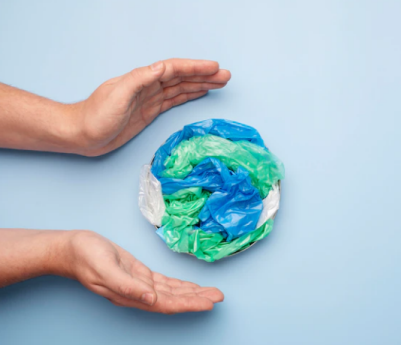As you may know, seven primary forms of plastic are used in different parts of the world; they vary in size, colour, intended use, and disposal (if you didn’t know, check out our earlier article, where we describe these types in more detail). But what kinds of plastic are recyclable, and you might inquire as an informed (and enquiring) consumer? What goods may be produced from recycled plastic? So if you’re intrigued about the second life of plastic garbage and want to learn which plastics can be recycled, stay reading!
Barriers to Recycling
Plastic can almost always be recycled. Several obstacles might hamper this procedure. Sadly, doing so is not always practical from an environmental, economic, or technical standpoint. Here are some explanations as to why recycling is not always possible:
Items frequently contain several layers and plastic types that are difficult to separate, making recycling labor-intensive and expensive. Food and other items can frequently contaminate plastics, making resins unfit for reuse.
Facilities for recycling, such as bottle depots in Calgary, SW, or elsewhere that cost millions to build and run, can only be profitable when massive amounts of plastic are handled daily. Due to low efficiency and high prices, recycling small amounts of plastics may become unprofitable and uneconomical.
These plastics can be recycled:
HDPE
HDPE is one of the most easily recycled plastic polymers, which is accepted by most recycling facilities worldwide. Products made of HDPE are typically collected by recycling businesses and sent to sizable facilities for processing. The recycling rate for HDPE bottles in the US is about 30%. Similar to PET, HDPE can be translucent or coloured (coloured). The main post-consumer recycled natural HDPE markets are film packaging and bottles for non-food applications, including detergent, motor oil, household cleansers, etc.
On the other side, the markets for pipe, lawn goods, and non-food application bottles for coloured HDPE post-consumer recycled resin. Additionally, HDPE is frequently downcycled into plastic lumber, tables, roadside curbs, and benches (a recycling method that involves reusing materials for lower-value products).
LDPE
Sometimes referred to as low-density polyethylene, it is used to manufacture the infamous plastic bags that supermarkets and other shops distribute. LDPE can technically be recycled. But as was already stated, just because something can be recycled doesn’t guarantee it will. For instance, plastic bags frequently tangle in recycling equipment, jeopardizing the entire recycling process.
Additionally, because LDPE is such a cheap and poor-quality plastic, recycling it is not profitable. As a result, #4 plastic won’t be accepted in curbside recycling bins by many towns. Despite these challenges, LDPE may be recycled and turned into packaging films and bin liners. Bottle depots in Calgary and other areas can help you recycle these plastics.
Also Read – https://businesszag.com/cyberattacks-can-compromise-endpoint-artificial-intelligence-systems/
PP
The final type of plastic that can be recycled is polypropylene, generally known as PP. Despite being among the most widely used plastic packaging materials globally, only about 1-3% of PP is recycled in the US, meaning most of the PP ends up in landfills. It takes about 20 to 30 years
to dissolve when it declines slowly. If it’s recyclable, why do we waste away so much of it? You might wonder once more. Again, the argument is that it is regrettably not always advantageous monetarily to reuse this information. It is difficult and expensive to recycle polypropylene, and in many circumstances, it is difficult to eliminate the scent of the substance that this plastic initially contained.
Conclusion
While recycling rates have risen over the past few years in practically every nation, there is still a long way to go before plastic recycling reaches the same levels of material reuse as glass and aluminum. But with a bit of help from everyone and the introduction of new bottle recycling depots, recycling will overtake the disposal of plastic as the preferable option.

